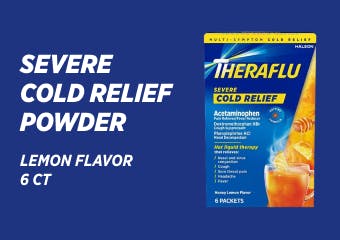Is Flu Season Real?
In short, yes, flu season is real—while they are detected year-round in the U.S., the flu viruses are most common during the fall and winter months.1 The Centers for Disease Control and Prevention monitor the yearly flu activity for infection rates and notices that usually, the flu peaks between December and February, the same peak of winter in the U.S.1 Other respiratory viruses also circulate during the flu season, including rhinovirus (one cause of the common cold) and respiratory syncytial virus.1 But why is it that people get sick during this time?
Certain Viruses Peak in Winter Months
“Diseases such as influenza are seasonal illnesses,” Levitan says, explaining that while we can catch the flu all year round, flu activity peaks in the winter. According to Harvard University, one of the main reasons cases of the flu peak in winter is because the virus survives better in colder, drier climates.
Vitamin D Levels Can Decrease in the Winter
According to Dr. Levitan, “Our vitamin D levels tend to be lowest this time of year, and vitamin D is essential to immune health.” People living in the northern half of the United States and Canada more commonly deal with lower levels of vitamin D because of the lack of sunlight (which helps produce vitamin D in our bodies) during winter months.
Germs Can Spread in Close Quarters
Many of us tend to hibernate during winter months, and since we are less likely to go outside, we spend more time in confined spaces. Less fresh air means more exposure to sick people, Dr. Levitan says, and indeed, a 2011 study done at Virginia Tech shows that dry, badly ventilated air may increase the spread of the influenza virus. There is also more opportunity for viruses to spread when people are in close contact at school and work.2
Fortunately, there are some ways to try to avoid catching a cold or the flu during winter.
How to Avoid Getting Sick During the Winter
So what are our best lines of defense during the winter for avoiding the cold or flu? Hand washing and zinc supplements may help. Vitamin D supplements also show promise when it comes to protecting against the cold and flu. Consider disinfecting surfaces before you touch them as well—cold viruses can survive up to two hours on a surface.2 Also try to stay home when you’re sick, and keep the kids out of school or daycare. You may also want to avoid super-close interpersonal contact with other people, like hugging, kissing, and shaking hands.
To avoid spreading the cold or flu to others, be sure to cover your mouth and nose when you cough or sneeze; wash your hands frequently, especially after coughing or sneezing; and use alcohol-based hand sanitizer or wipes if you’re unable to get to good, old-fashioned soap and water.
If you find yourself coming down with the sniffles or a fever despite your best efforts, make sure to treat the symptoms right away with a cough and cold symptom treatment like Theraflu.



